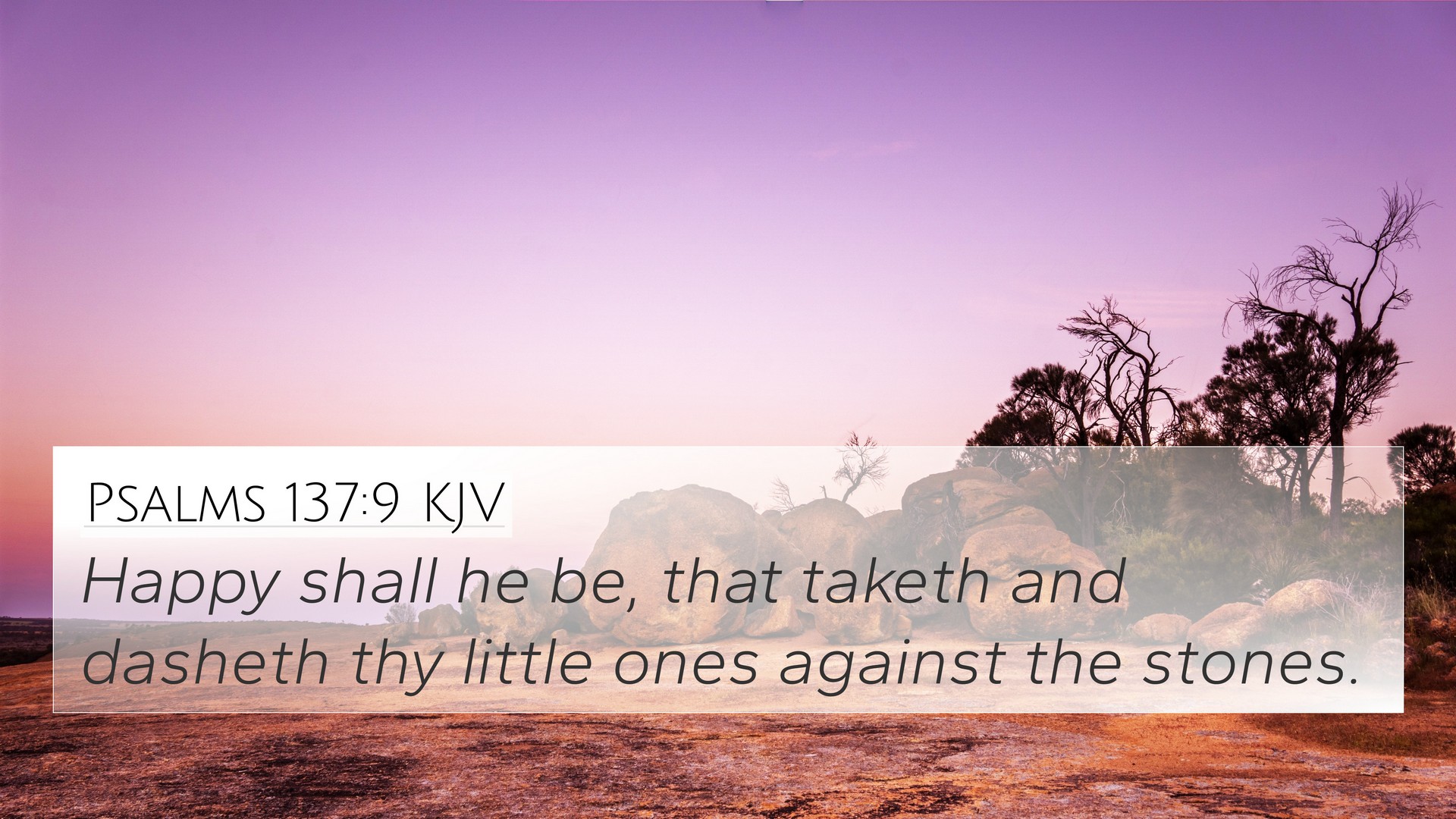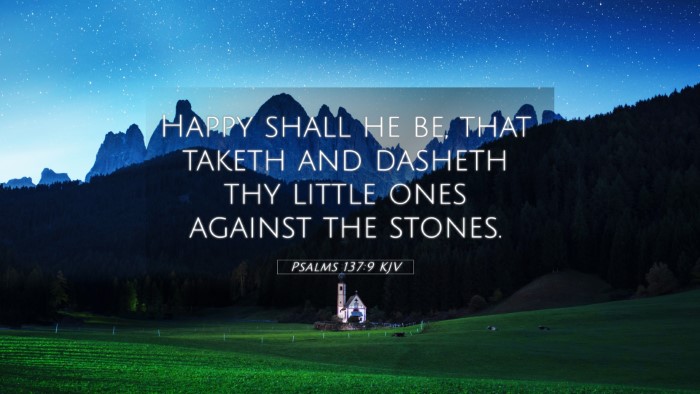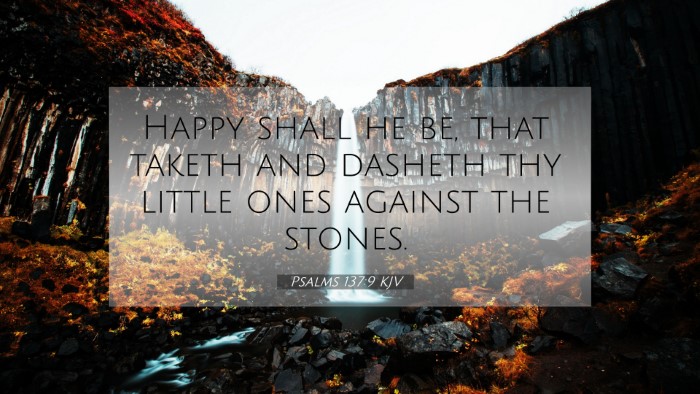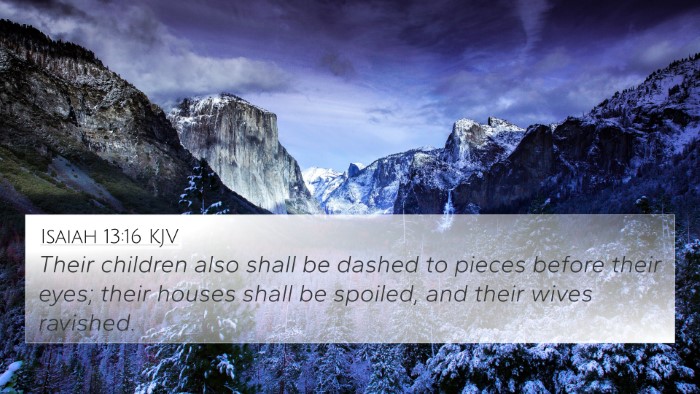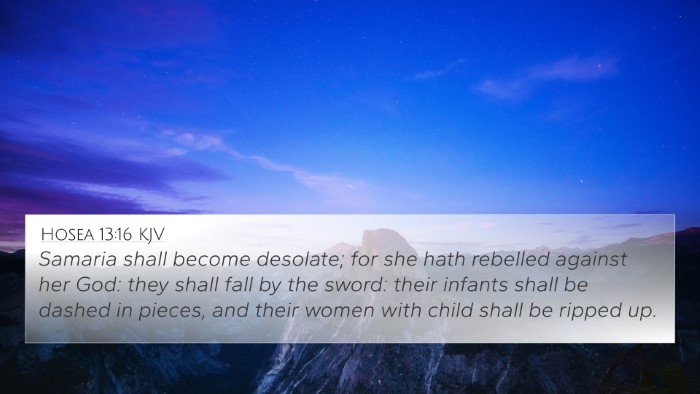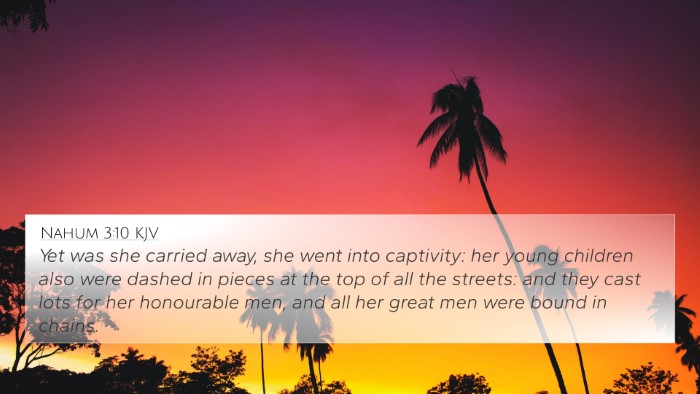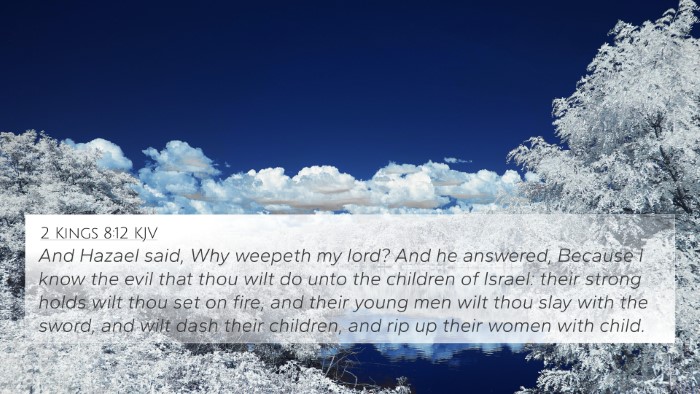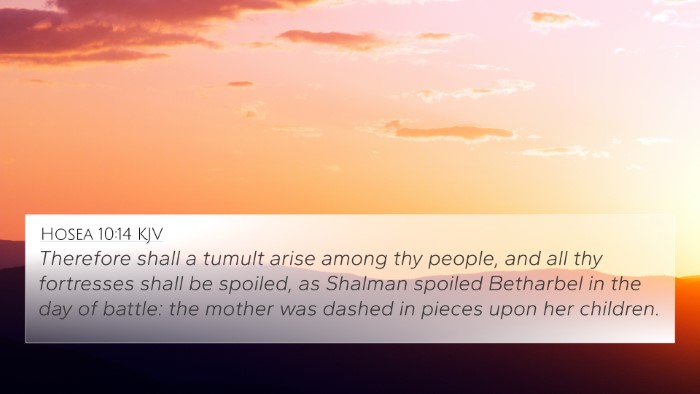Psalms 137:9 - Summary and Interpretation
Bible Verse: Psalms 137:9 - "Blessed is he who seizes your infants and dashes them against the rocks."
Understanding Psalms 137:9
The verse is a part of a lament by the Israelites during their Babylonian captivity. It expresses deep anguish and a desire for justice against their captors. This verse encapsulates a raw emotion, where the psalmist is reflecting the sorrow and pain inflicted upon them by the Babylonians.
Commentary Insights
Matthew Henry: Henry emphasizes the brutal nature of the verse as a cry for vengeance. He highlights the depth of agony Israel felt during their exile. This desire for vengeance indicates their desperation and longing for restoration.
Albert Barnes: Barnes notes that while the sentiment is extreme, it reflects the intense suffering of the Israelites. He argues that such a fierce desire for retribution is indicative of the pain of separation and loss felt by the people of Israel. Barnes, however, stresses the need for balance in interpreting such verses, as they arise from a moment of deep sorrow.
Adam Clarke: Clarke points out the cultural context of the time. He explains that dashing infants against rocks symbolically represents the complete destruction of the enemy, capturing the Israelites' feeling of hopelessness and rage against those who deprived them of their homeland.
Cross-References
This verse is crucial for understanding the emotional state of the Israelites and connects to several other biblical passages. Here are some cross-referenced verses:
- Isaiah 13:16: Discusses the destruction of the Babylonians.
- Psalm 137:7: Reflects the longing for Jerusalem and the remembrance of Zion.
- Lamentations 4:10: Illustrates the plight of Jerusalem during its downfall.
- Matthew 2:16: References the king's decree that parallels the devastation expressed in Psalms.
- Revelation 18:6: A prophetic judgment against Babylon, tying New Testament themes of retribution.
- Deuteronomy 32:25: Mentions destruction and the plight of children in judgment language.
- Kings 2 Kings 25:7: Describes the fate of Jerusalem after its capture.
- Jeremiah 51:20-24: God’s judgment against Babylon for its cruelty.
- Romans 12:19: Explains the principles of vengeance and justice.
Connections Between Bible Verses
This verse serves as a bridge in understanding divine justice and the human yearning for retribution. It also invites a deeper analysis of how emotions expressed in the Old Testament resonate with teachings in the New Testament.
Thematic Bible Verse Connections
Exploring the themes of justice, vengeance, and emotional lament across the scriptures reveals inter-Biblical dialogue:
- The deep yearning for justice seen throughout the Psalms.
- Connections to prophetic literature which often includes themes of destruction and renewal.
- The bridge between Old Testament cries for justice and New Testament teachings on mercy and forgiveness.
Cross-Referencing Biblical Texts
The act of cross-referencing this emotional and poetic text is a valuable exercise in understanding the larger narrative of scripture. It allows for comprehensive Bible analysis and facilitates a deeper connection to the underlying themes that resonate throughout the biblical canon.
Tools for Bible Cross-Referencing
For deeper study and explorations of connections between verses, believers and scholars alike are encouraged to utilize:
- Bible Concordances: To find similar themes across different scriptures.
- Bible Cross-Reference Guides: Tools designed to help in studying links among verses.
- Online Bible Study Tools: Digital resources where cross-referencing can be more readily managed.
Conclusion
Psalms 137:9 serves not only as a profound expression of grief but also as an opportunity for deepening our understanding of justice, vengeance, and emotional transparency in Scripture. This complex weaving of human emotion and divine justice highlights the invaluable lessons found throughout the scriptures.
